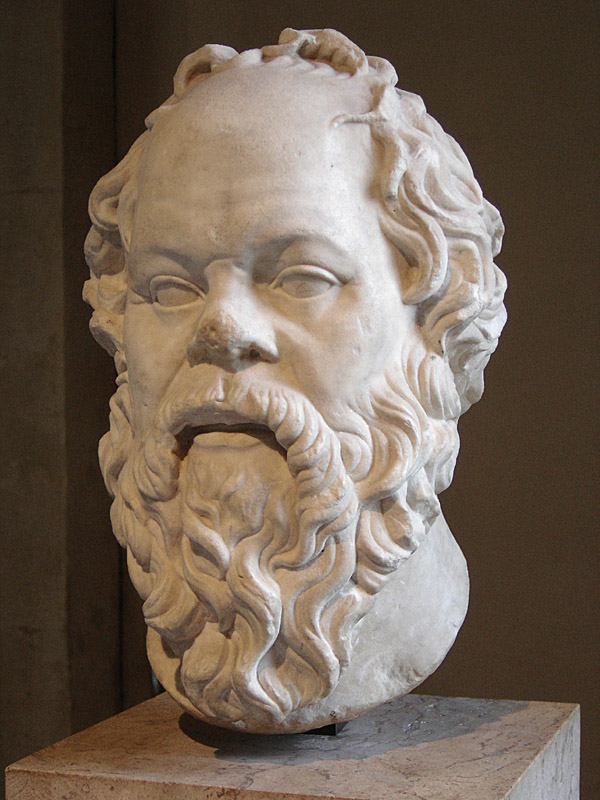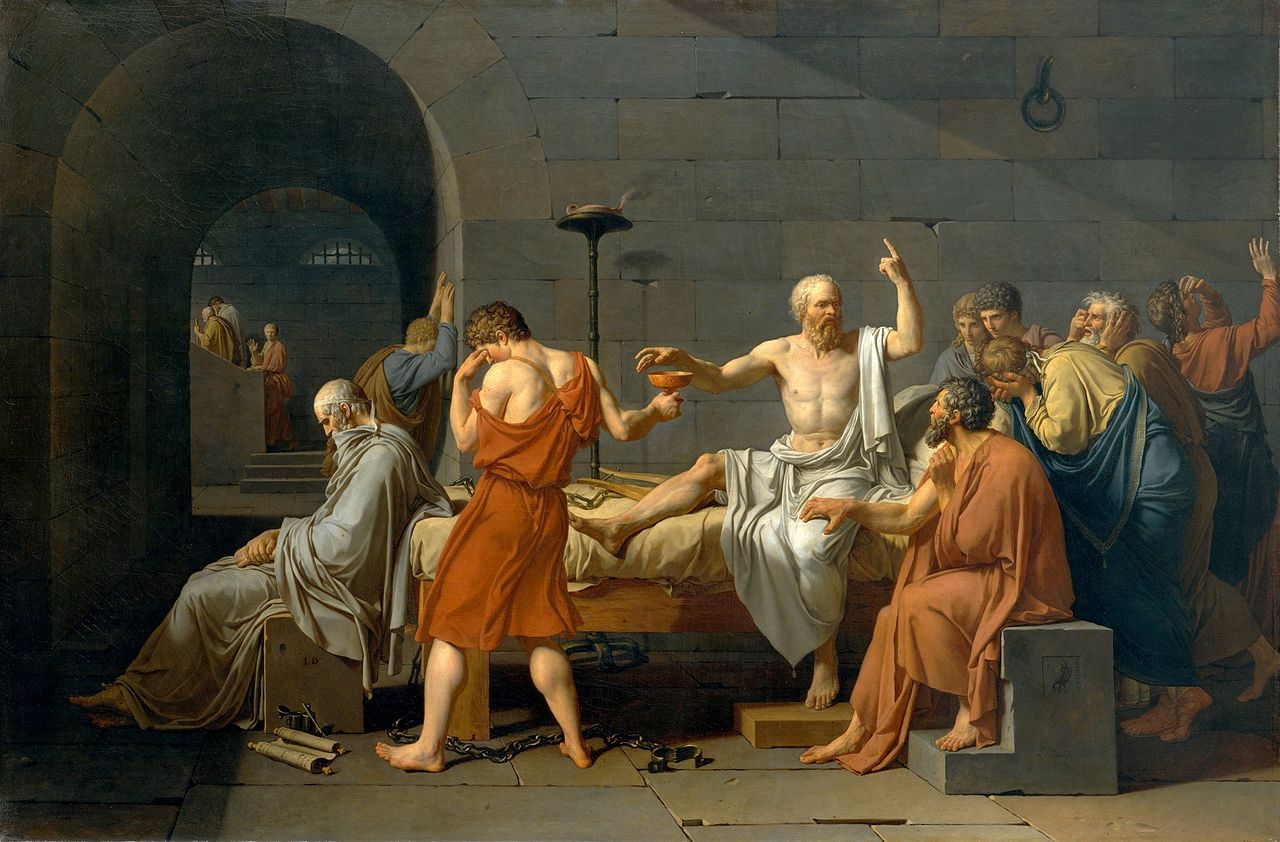 |
Craig White's Literature Courses Critical Sources
Notes to Nietzsche, The Birth of Tragedy
Chapter 13 |
 Socrates (bust), the Louvre |
64 story that Socrates helped Euripides with writing
Old robust
64-5 comedies
of Aristophanes: Socrates chief of
Sophists
65 Close identification b/w Socrates and Euripides in minds of ancients
Socrates an enemy of art of tragedy except for Euripides
Oracle:
Socrates as wisest, Euripides as 2nd
prize, Sophocles 3rd
Sophocles,
unlike Aeschylus,
knew the right thing
Most acute:
Socrates’s admission that he
knew nothing:
celebrities
only simulation of knowledge, work “only
instinctively”
saw in instinct only lack of insight and power of delusion
deduction: prevailing siituation misguided and reprehensible
66 Socrates's irreverence and superiority: precursor of radically different culture, art, and
morality
Essence of
Socrates’s daimonion: divine voice of guidance; x-conscious
knowledge
productive people: instinct = power of creation and affirmation
In Socrates instinct becomes the critic, consciousness the
creator
Embodiment of the non-mystic
Tremendous driving-wheel of logical Socratism
67 corrosive influence on the instincts
The dying Socrates
became the new ideal for noble Greek youth

The Death of Socrates, by Jacques-Louis David (1787)
[from Glossary: 67 the dying Socrates: The trial and death of Socrates at the age of 70 in 399 BC resulted from accusations of impiety and of corrupting youth.
The chief surviving records are four dialogues by his student Plato (including the Phaedo), and Xenophon’s Apology of Socrates to the Jury.
Socrates’s behavior at his trial seemed to invite his conviction, and Socrates
calmly drank poison while his students mourned.